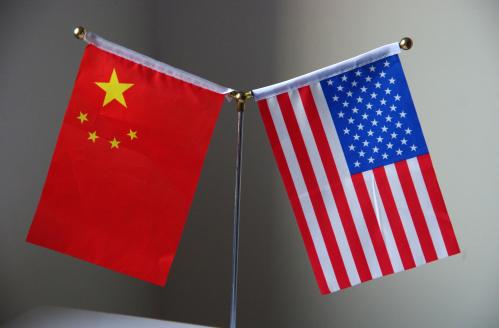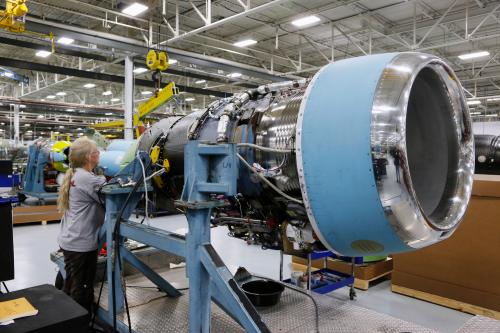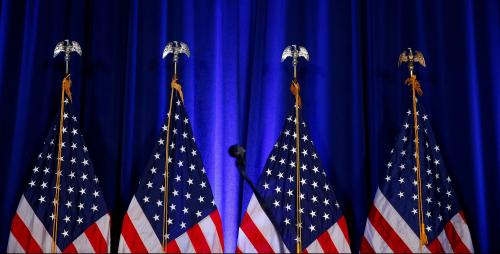Many in Brazil expected that President Rousseff’s first visit to Washington would be a State Visit with its opportunity for both ceremony and the glamour of a state dinner. Instead, they got a working visit which was intended to be highly practical and accomplish business. Dilma Rousseff’s one day visit to Washington on Easter Monday dispensed with ceremony and focused on substantive meetings on trade, defense, educational exchange, computational science, technology transfers, and the deepening of a 2007 MOU on advance biofuels cooperation, including common standards for bioenergy, and the sustainable production of aviation biofuels.
Such an initiative was only possible after January 2012 when the U.S. Congress allowed the lapse of both a 54-cents-per-gallon tariff on imported ethanol and an ethanol production tax credit of 46 cents per gallon. Complementing a tariff elimination enacted by Brazil in 2010, the U.S. changes enabled Brazil’s quest for a hemispheric free market in ethanol to become a reality.
These changes are particularly noteworthy because they removed a serious irritant in the bilateral relationship. However, a tariff suspension and technical discussions do not represent the strategic direction that national leaders might seek. The preferred explanation for such intricate bureaucratic business is that when analyzed together they create a network of working groups that provide the building block for a sustained bilateral relationship.
However, the question arises whether such technical agreements and working groups are sufficient to raise the level of trust between the two governments and further the bilateral relationship?
There has been no U.S. support to help Brazil gain a permanent seat on the United Nations Security Council, nor has there been any public appreciation for Brazil’s offer to move Iran towards a peaceful nuclear regime. Instead, a standard series of agreements, nearly identical to those signed with the British Deputy Prime Minister in 2011, were the principal outcome of Rousseff’s visit to Washington.
Over the past few years, the U.S. Defense Department has cancelled two Embraer aircraft contracts –the first in 2006 to sell Super Tucano turbo propelled aircraft to the Venezuelans and the second in February 2012 to sell 20 Super Tucanos to the U.S. Air Force. The explanation for the first was the potential transfer of sensitive technology to the Venezuelan government. The explanation for the second was a protest bid from a competing U.S. company. Whatever the explanation, Brazilian proponents of both Embraer contracts concluded that the U.S. government was an unreliable partner. On the U.S. side, Brazil’s decision in 2010 to negotiate with Tehran while sanctions against the Iranian regime were close to approval within the UN Security Council raised the specter that Brazil was a spoiler on an issue considered vital to Washington. All three events have raised suspicion that Washington neither understands, nor appreciates Brazil’s international status and global reach.
Those who expected more from Rousseff’s visit were disappointed. To the Brazilian press, this low key and pragmatic use of Dilma’s time was anticlimactic. They would have preferred concrete deliverables, namely a commitment to support a permanent Brazilian seat in the UN Security Council or an agreement to admit Cuba as an observer to this year’s Summit of the Americas. For the U.S. business community eager to develop joint ventures, the visit offered little prospect of a free trade agreement. In both countries, commentators have asked whether the visit was worthwhile.
Where do we go from here? Secretary Clinton flew to Brasilia on April 16 to participate in the Open Government Partnership and to build on a previously agreed U.S.-Brazil global partnership. Understanding the limitations of the earlier Working Visit, Clinton stressed the pragmatic “building of cooperation” between governments, private sectors, universities, civil societies and citizens. The practical development of scientific exchanges, U.S. engineering expertise for developing pre-salt deepwater reserves, and student exchanges proceed. However, the financing for these projects is more dependent on the private sector in both countries than on government funds. Within the broader bilateral partnership, both Brazilian and U.S. private sectors must play key roles in developing cooperation in science, technology and innovation.
In the area of defense cooperation, U.S. Defense Secretary Panetta will fly to Brazil in the near future to participate in a dialogue under the Defense Cooperation Agreement of 2010. The Brazilian definition of defense now extends well beyond the 16,885 kilometers land border. There are pre-salt oil and gas platforms in the South Atlantic to defend against pirates, there are threats to the rainforest from climate change, cyber security, the protection of intellectual property, stability in Haiti where Brazilian peacekeepers play a key role, and the protection of certain U.S. interests in Bolivia; all matters that require a sustained dialogue.
The broad goals of UN reform, Cuban recognition, the future of the World Trade Organization and possibly a bilateral free trade agreement must await a future when greater trust exists between the two nations. In the meantime, the nuts and bolts of tariff, regulatory and scientific agreements can provide the building blocks of a relationship that requires mutual respect. If small confidence building measures can succeed, overtime greater trust will grow and enable more visionary agreements. Then is the time for a State Visit and the pomp of a State Dinner.



Commentary
Op-edU.S.-Brazilian Relations: Understanding President Rousseff’s Visit to Washington and Secretary Clinton’s Visit to Brasilia
April 20, 2012